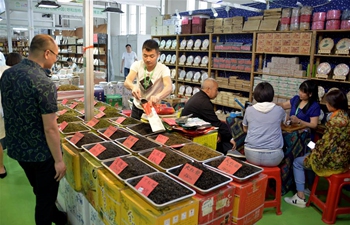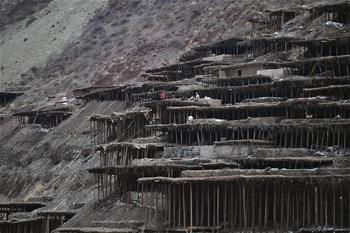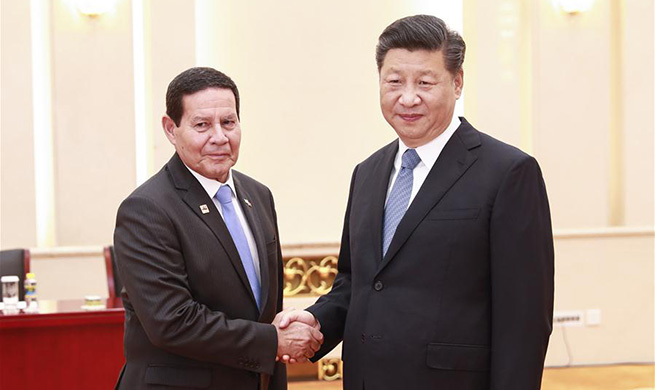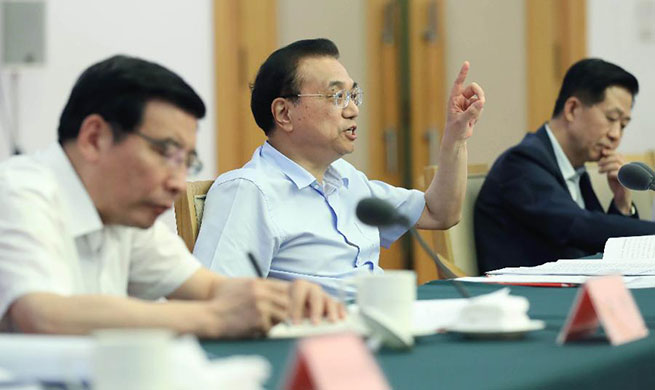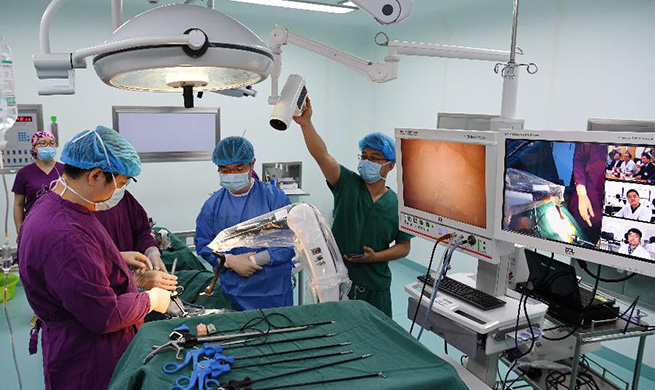NANCHANG, May 24 (Xinhua) -- Six central Chinese provinces inked 51 foreign-invested projects with total contractual investment of 10.5 billion U.S. dollars, at the Expo Central China 2019.
The projects are mainly in areas such as advanced manufacturing, new energy, new materials, electronic information, Internet of Things and modern logistics.
The inflow of multinational enterprises into high-end industries highlights the economic vitality of central China, including provinces of Henan, Shanxi, Hubei, Anhui, Hunan and Jiangxi. as they move up the value chain for quality growth.
In 2018, the region's economy expanded 7.8 percent, 1.2 percentage points higher than the national average.
The six provinces saw actual use of foreign investment up 16 percent year on year, with investment in the scientific research and technology service sector soaring five-fold, according to the Ministry of Commerce.
The region has made progress in optimizing the existing production capacity and replacing old growth drivers with new ones.
Last year, the high and new technology industry in Wuhan, the capital of Hubei, contributed to over one-fifth of its gross domestic product, said the city's deputy mayor Xu Honglan.
Ten member companies of the U.S.-China Business Council attended the expo, which closed earlier this week. Owen Haacke, chief representative at Shanghai Office of the U.S.-China Business Council, said companies came for opportunities brought by the region's promising market and improving business environment.
"Cooperation with local governments and companies will be extended to areas such as big data, cloud computing and Internet of Things," said Yin Jinming, vice president at SAP China. "We unveiled the China Acceleration Plan early the year, with the priority on increasing investment in central China."
German software behemoth SAP SE has established cooperation with half of China's top 100 enterprises and over half of its 5,700 employees in China are R&D staff.
"We are planning to invest a further 600 million yuan on a joint-venture factory in Wuhan," said Yang Xiaoping, president of British Petroleum (BP) (China), at the expo.
BP has invested tens of billions of yuan in China since it entered the country over 40 years ago and is shifting its business from east to central China.
"BP have invested high-end lubricant production bases in the six central provinces and plans to extend the cooperation to aviation fuel," Yang said.
"Many cities in central China choose the information industry as their prime pillar industry, and digital economy is a key driver behind the industrial upgrading," said Zhou Bing, vice president of Dell and head of government affairs at Dell Greater China, adding that Dell wanted more cooperation with Nanchang in the VR industry.
"The new economy plays an increasingly important role in economic transformation," said Yu Ying, Partner of KPMG in China. The more innovation resources there are, the better the new economy could develop, Yu said.
For many transnational corporations, the region's rapid development means more inflows of talents, technologies and capital.
As home to over 60 universities and colleges, Hefei, capital city of Anhui Province, was selected as one of the most attractive cities for foreigners in 2018.
"Talent is the key to the city's development," said Zhu Ce, deputy mayor of Hefei. With advantages in talent and scientific research, Hefei has attracted 46 foreign world top 500 enterprises, including Volkswagen from Germany, and Air Products and Chemicals from the United States.
Compared to east China, central China features a less competitive market, more market potential and a more comfortable working and living environment, thus being an ideal choice for latecomers to the Chinese market, said Jeff Astle, China-Britain Business Council's executive director in China.





